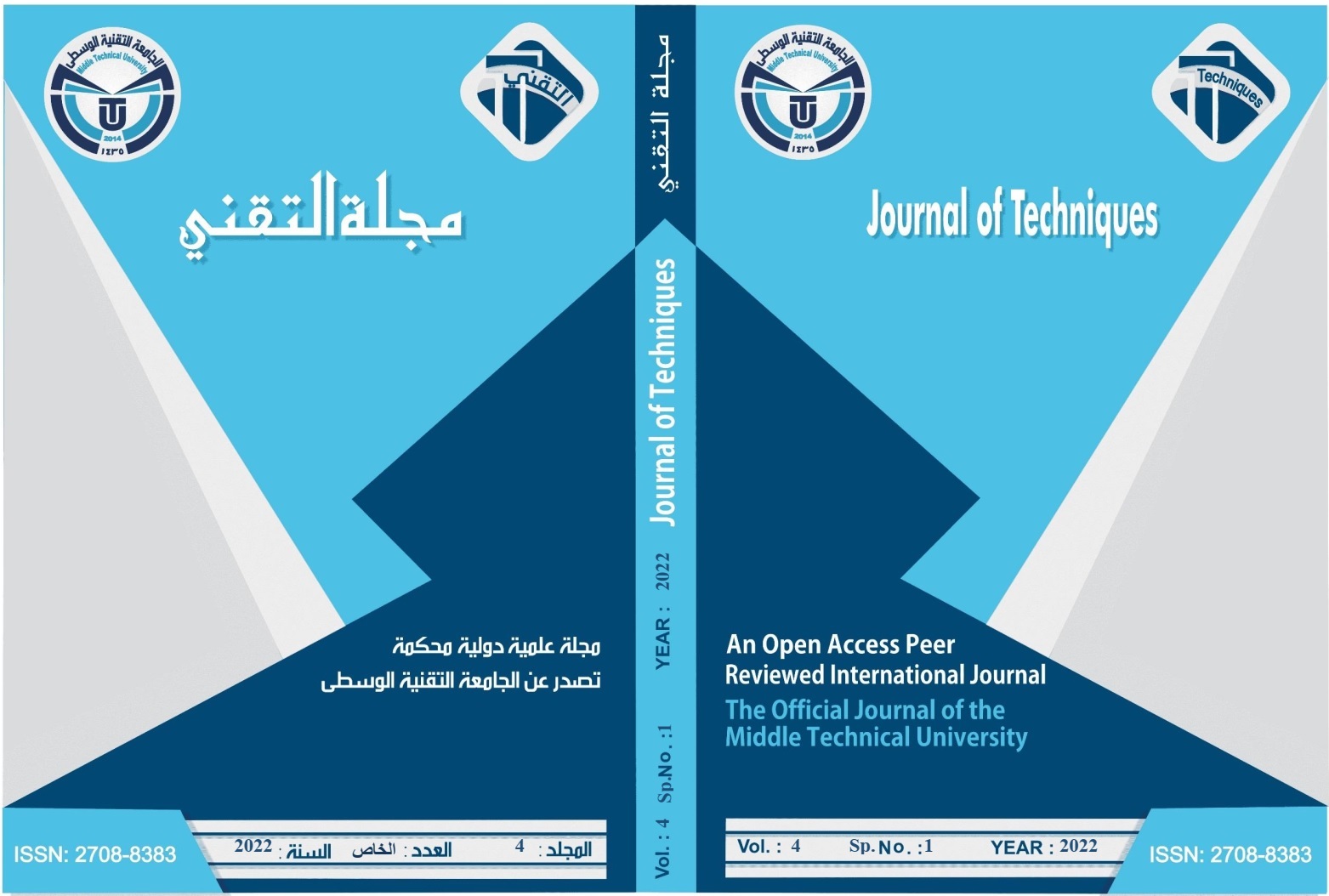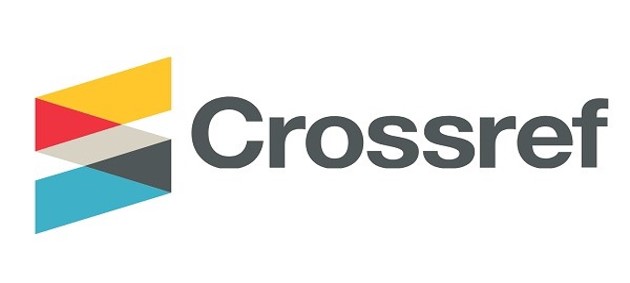Evaluation of Interleukin-23 and Creatine Kinase –MB (CK-MB) Levels in Acute Coronary Syndrome Patients with COVID-19 in Baghdad City
DOI:
https://doi.org/10.51173/jt.v4i33.763Keywords:
Acute coronary syndrome (ACS), COVID-19, Interleukin-23 (IL-23),, creatine kinase isoenzyme (CK-MB)Abstract
Acute coronary syndrome (ACS) is considered a common cardiovascular disease, in which there is a blood supply reduction to the myocardium, mostly due to atherosclerosis in the coronary arteries. the present study was designed to detect serum markers in Acute coronary syndrome patients infected with COVID-19 in Baghdad Governorate, by evaluating the level of Interleukin-23(IL-23) and level of creatine kinase isoenzyme (CK-MB). Methods: A total of one hundred fifty participants were enrolled in the current study divided into three groups 50 patients with ACS and 50 ACS with COVID-19 patients, while 50 participants as apparently healthy controls. age and sex-matched as healthy controls were involved in the present study. The serum IL-23 and CK-MB levels were measured using an ELISA technique.
Serum concentrations of IL-23 and CK-MB were significantly higher in ACS patients and ACS with COVID-19 patients compared to healthy controls (P≤0.01) also there was a highly significant difference at (P≥ 0.01) between ACS patients and ACS with COVID-19 patients.
IL- 23 can be considered a biomarker for ACS patients and ACS with COVID-19 patients.
Downloads
References
Kanu JS, Gu Y, Zhi S, Yu M, Lu Y, Cong Y, et al. Single nucleotide polymorphism rs3774261 in the AdipoQ gene is associated with the risk of coronary heart disease (CHD) in Northeast Han Chinese population: a case-control study. Lipids Health Dis. 2016;15(1):1–11.
Smith JN, Negrelli JM, Manek MB, Hawes EM, Viera AJ. Diagnosis and management of acute coronary syndrome: an evidence-based update. J Am Board Fam Med. 2015;28(2):283–93.
O’gara PT, Kushner FG, Ascheim DD, Casey Jr DE, Chung MK, De Lemos JA, et al. 2013 ACCF/AHA guideline for the management of ST-elevation myocardial infarction: executive summary: a report of the American College of Cardiology Foundation/American Heart Association Task Force on Practice Guidelines. Circulation. 2013;127(4):529–55.
Jarvis S, Saman S. Diagnosis, management and nursing care in acute coronary syndrome. Nurs Times. 2017;113(3):31–5.
Magadum A, Kishore R. Cardiovascular manifestations of COVID-19 infection. Cells. 2020;9(11):2508.
Alhazzani W, Møller MH, Arabi YM, Loeb M, Gong MN, Fan E. & Du, B.(2020). Surviving Sepsis Campaign: guidelines on the management of critically ill adults with Coronavirus Disease 2019 (COVID-19). Intensive Care Med. :1–34.
Yang X, Yu Y, Xu J, Shu H, Liu H, Wu Y, et al. Clinical course and outcomes of critically ill patients with SARS-CoV-2 pneumonia in Wuhan, China: a single-centered, retrospective, observational study. Lancet Respir Med. 2020;8(5):475–81.
Li Z, Yi Y, Luo X, Xiong N, Liu Y, Li S, et al. Development and clinical application of a rapid IgM‐IgG combined antibody test for SARS‐CoV‐2 infection diagnosis. J Med Virol. 2020;92(9):1518–24.
Wu Z, McGoogan JM. Characteristics of and important lessons from the coronavirus disease 2019 (COVID-19) outbreak in China: summary of a report of 72 314 cases from the Chinese Center for Disease Control and Prevention. jama. 2020;323(13):1239–42.
Bansal M. Cardiovascular disease and COVID-19. Diabetes Metab Syndr Clin Res Rev. 2020;14(3):247–50.
Pyar KP, Myo AS, Hlaing SW, Aung ZNH, Maung NL, Kyaw AP, et al. Acute coronary syndrome with cardiogenic shock due to occlusion of right coronary artery in a young physician caring patients with COVID-19 infection: A Case report.
Kook H, Jang DH, Kim J-H, Cho J-Y, Joo HJ, Cho S-A, et al. Identification of plaque ruptures using a novel discriminative model comprising biomarkers in patients with acute coronary syndrome. Sci Rep. 2020;10(1):1–11.
Lockshin B, Balagula Y, Merola JF. Interleukin 17, inflammation, and cardiovascular risk in patients with psoriasis. J Am Acad Dermatol. 2018;79(2):345–52.
Ye, J., Wang, Y., Wang, Z., Liu, L., Yang, Z., Wang, M., ... & Wan, J. (2020). Roles and mechanisms of interleukin-12 family members in cardiovascular diseases: opportunities and challenges. Frontiers in Pharmacology, 11, 129.
Oppmann B, Lesley R, Blom B, Timans JC, Xu Y, Hunte B, et al. Novel p19 protein engages IL-12p40 to form a cytokine, IL-23, with biological activities similar as well as distinct from IL-12. Immunity. 2000;13(5):715–25.
Aggarwal S, Ghilardi N, Xie M-H, de Sauvage FJ, Gurney AL. Interleukin-23 promotes a distinct CD4 T cell activation state characterized by the production of interleukin-17. J Biol Chem. 2003;278(3):1910–4.
McKenzie BS, Kastelein RA, Cua DJ. Understanding the IL-23-IL-17 immune pathway. Trends Immunol. 2006 Jan;27(1):17–23.
Sagar RS, Mudraje NB, Chikmagalur AK, Siddaraju NK, Appaiah KM, Sahadev A, et al. Creatine Kinase-MB as a Cardiac Biomarker in Canine Cardiac Disorders. Indian J Vet Sci Biotechnol. 2021;17(3):28.
Ota T, Hasegawa Y, Murata E, Tanaka N, Fukuoka M. False-Positive Elevation of CK-MB Levels with Chest Pain in Lung Adenocarcinoma. Case Rep Oncol. 2020;13(1):100–4.
Hafiane A. Vulnerable plaque, characteristics, detection, and potential therapies. J Cardiovasc Dev Dis. 2019;6(3):26.
Alwi I. Targeting Inflammation and Immune System in Acute Myocardial Infarction. Vol. 51, Acta medica Indonesiana. Indonesia; 2019. p. 287–9.
Jinnouchi H, Kolodgie FD, Romero M, Virmani R, Finn A V. Pathophysiology of coronary artery disease. In: Vessel based imaging techniques. Springer; 2020. p. 211–27.
Iragavarapu T, Radhakrishna T, Babu KJ, Sanghamitra R. Acute coronary syndrome in young-A tertiary care centre experience with reference to coronary angiogram. J Pract Cardiovasc Sci. 2019;5(1):18.
Brown JC, Gerhardt TE, Kwon E. Risk factors for coronary artery disease. 2020;
Singh A, Museedi AS, Grossman SA. Acute coronary syndrome. 2017;
Chitra R, Chenthil Jegan TM, Ezhilarasu R. Analysis of myocardial infarction risk factors in heart disease data set. Biol Med Case Rep 2017; 1 9-15 Biol Med Case Rep 2017 Vol 1 Issue. 2017;1:16–8.
Gómez‐Belda AB, Fernández‐Garcés M, Mateo‐Sanchis E, Madrazo M, Carmona M, Piles‐Roger L, et al. COVID‐19 in older adults: What are the differences with younger patients? Geriatr Gerontol Int. 2021;21(1):60–5.
Costagliola G, Spada E, Consolini R. Age‐related differences in the immune response could contribute to determine the spectrum of severity of COVID‐19. Immunity, Inflamm Dis. 2021;9(2):331–9.
Tomidokoro D, Hiroi Y. Cardiovascular implications of the COVID-19 pandemic. J Cardiol. 2021;
Mueller AL, McNamara MS, Sinclair DA. Why does COVID-19 disproportionately affect older people? Aging (albany NY). 2020;12(10):9959.
Zhou D, Borsa M, Simon AK. Hallmarks and detection techniques of cellular senescence and cellular ageing in immune cells. Aging Cell. 2021;20(2):e13316.
Cheema FM, Cheema HM, Akram Z. Identification of risk factors of acute coronary syndrome in young patients between 18-40 years of age at a teaching hospital. Pakistan J Med Sci. 2020;36(4):821.
Teoh J, Li X, Simoncini T, Zhu D, Fu X. Estrogen-mediated gaseous signaling molecules in cardiovascular disease. Trends Endocrinol Metab. 2020;31(10):773–84.
Ji H, Kwan AC, Chen MT, Ouyang D, Ebinger JE, Bell SP, et al. Sex differences in myocardial and vascular aging. Circ Res. 2022;130(4):566–77.
Bienvenu LA, Noonan J, Wang X, Peter K. Higher mortality of COVID-19 in males: sex differences in immune response and cardiovascular comorbidities. Cardiovasc Res. 2020;116(14):2197–206.
David L Coven, MD, PhD; Chief Editor: Eric H Yang M. Acute Coronary Syndrome Workup. Medscape [Internet]. 2020; Available from: https://www.medscape.com/answers/1910735-178336/what-is-the-role-of-ck-mb-measurement-testing-in-the-workup-of-acute-coronary-syndrome-acs
Fagel ND, Amoroso G, Vink MA, Slagboom T, van der Schaaf RJ, Herrman JP, et al. An immediate or early invasive strategy in non-ST-elevation acute coronary syndrome: The OPTIMA-2 randomized controlled trial. Am Heart J [Internet]. 2021;234:42–50. Available from: https://doi.org/10.1016/j.ahj.2021.01.001
Walker C, Deb S, Ling H, Wang Z. Assessing the elevation of cardiac biomarkers and the severity of COVID-19 infection: a meta-analysis. J Pharm Pharm Sci. 2020;23:396–405.
Nishiga M, Wang DW, Han Y, Lewis DB, Wu JC. COVID-19 and cardiovascular disease: from basic mechanisms to clinical perspectives. Nat Rev Cardiol. 2020;17(9):543–58.
Behzadi P, Behzadi E, Ranjbar R. IL-12 family cytokines: general characteristics, pathogenic microorganisms, receptors, and signalling pathways. Acta Microbiol Immunol Hung. 2016;63(1):1–25.
Zhu H, Li J, Wang S, Liu K, Wang L, Huang L. Hmgb1-TLR4-IL-23-IL-17A axis promote ischemia-reperfusion injury in a cardiac transplantation model. Transplantation. 2013;95(12):1448–54.
Fragoulis GE, Siebert S, McInnes IB. Therapeutic targeting of IL-17 and IL-23 cytokines in immune-mediated diseases. Annu Rev Med. 2016;67:337–53.
Su Y, Feng S, Luo L, Liu R, Yi Q. Association between IL-35 and coronary arterial lesions in children with Kawasaki disease. Clin Exp Med. 2019;19(1):87–92.
Posadas-Sánchez R, Vargas-Alarcón G. Innate Immunity in Coronary Disease. The Role of Interleukin-12 Cytokine Family in Atherosclerosis. Rev Investig Clinica. 2018;70(1):5–17.
Wang D, Li Q, Song S, Li C. Relationship between IL-23R rs11209026 Gene Polymorphism and Susceptibility to Acute Coronary Syndrome. Yangtze Med. 2018;02(03):192–202.
Liao Y, Hu X, Guo X, Zhang B, Xu W, Jiang H. Promoting effects of IL-23 on myocardial ischemia and reperfusion are associated with increased expression of IL-17A and upregulation of the JAK2-STAT3 signaling pathway. Mol Med Rep. 2017;16(6):9309–16.
Van der Heijden T, Bot I, Kuiper J. The IL-12 cytokine family in cardiovascular diseases. Cytokine [Internet]. 2019;122(June):0–1. Available from: http://dx.doi.org/10.1016/j.cyto.2017.10.010
Eskandari V, Amirzargar AA, Moazzami B, Mahmoudi MJ, Rahnemoon Z, Sadati S, et al. Increased levels of IL-23 in peripheral blood mononuclear cells of patients with chronic heart failure. Acta Med Iran. 2018;56(5):295–300.
Khojasteh-Fard M, Abolhalaj M, Amiri P, Zaki M, Taheri Z, Qorbani M, et al. IL-23 gene expression in PBMCs of patients with coronary artery disease. Dis Markers. 2012;33(6):289–93.
Smail SW. Serum IL-23 and IL-10 as predictors of disease progression and severity in COVID-19 patients. 2022;2–11.
Hadji H, Bouchemal K. Advances in the treatment of inflammatory bowel disease: Focus on polysaccharide nanoparticulate drug delivery systems. Adv Drug Deliv Rev. 2022;114101.
Abbasifard M, Kazemi Arababadi M, Bahrehmand F, Bazmandegan G, Shabani Shahrbabaki Z, Kamiab Z. Gender affects IL-23 serum levels in the hospitalized COVID-19 infected patients. Am J Clin Exp Immunol [Internet]. 2022;11(2):28–33. Available from: http://www.ncbi.nlm.nih.gov/pubmed/35601022%0Ahttp://www.pubmedcentral.nih.gov/articlerender.fcgi?artid=PMC9123428.

Downloads
Published
How to Cite
Issue
Section
License
Copyright (c) 2022 Zahraa kareem Yaseen, Farhan Abood Risan, Suhad Hassan Aubaid

This work is licensed under a Creative Commons Attribution 4.0 International License.
















